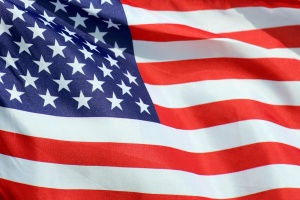Violence and Religion: Inextricably Entwined?
December 21st, 2015
 With the recent tragedy in Oregon, Americans are reminded yet again of the dangerous power of religious conviction. News reports of the incident informed us that the shooter allegedly linked his killings to whether the victims were Christian. This and other incidents around the world lead many to believe that violence and religion are different sides of the same coin, linked to such a degree that they will never part. It is for this reason that the separation of church and state are so important. Our forefathers, the visionaries that created our Constitution, saw this truth and fought hard to ensure that our country would be different from those that came before it.
With the recent tragedy in Oregon, Americans are reminded yet again of the dangerous power of religious conviction. News reports of the incident informed us that the shooter allegedly linked his killings to whether the victims were Christian. This and other incidents around the world lead many to believe that violence and religion are different sides of the same coin, linked to such a degree that they will never part. It is for this reason that the separation of church and state are so important. Our forefathers, the visionaries that created our Constitution, saw this truth and fought hard to ensure that our country would be different from those that came before it.
A History of Separation
At the time the United States was being formed, the country it split from, England, had a long history of a strong connection between church and state. Whether it was the Catholic kings of pre-Henry VIII, or the Protestant kings and queens of more modern days, the head of state was often indistinguishably linked to his or her particular faith. In fact, even today the head of state, Queen Elizabeth, is also known as the “Defender of the Faith.” While the title is arguably ceremonial in nature, what happens if there is a sudden shift in popularity of the Protestant religion in England? Could it lead to revolution, war, or other upheaval? It may seem unlikely, but it should also be remembered that many modern day nations have religious restrictions on their leaders. For example, 15 percent of the countries of the world mandate that their heads of state, including monarchs, are of a specific religious affiliation. Another 19 require ceremonial monarchs to be of a certain faith, including the United Kingdom.
Religious War or Religious Freedom
In order to avoid the inevitable conflict that comes with varying religious beliefs, the leaders who drafted the words of the original Constitution chose to include the requirement that elected leaders of the states and country as a whole “shall be bound by Oath or Affirmation, to support this Constitution; but no religious test shall ever be required as a qualification to any office or public trust under the United States.” It is an important distinction between an allegiance to law versus an allegiance to a religion. Most importantly, it is a distinction that can save the lives of all innocents the leaders are sworn to protect. Those who seek to blur the line between the separation of church and state should note the consequences that arise when two different sets of strongly held beliefs collide. Historically, it is not a winning combination for any nation, especially one that is relatively young when compared to other leaders of the modern world.
Into the Future
As our country continues to grow and lead the world into the 21st century, it is the hope of many who agree with its founders that the noise of the few does not overpower the wisdom of the many when it comes to mixing religion and government. As challenges to this separation continue to find their way into the court system, Universal Life Church Case Law will be there to watch, listen, and report. Our goal is to ensure that the Constitution’s religious protections for individual citizens is never eroded, while protecting all citizens from the dangers of a religious leadership.



Reading the article about separation of church and state reminded my of something I read many years ago, and I hope it was facetiously. It was a sign which read “Kill People For Jesus”.